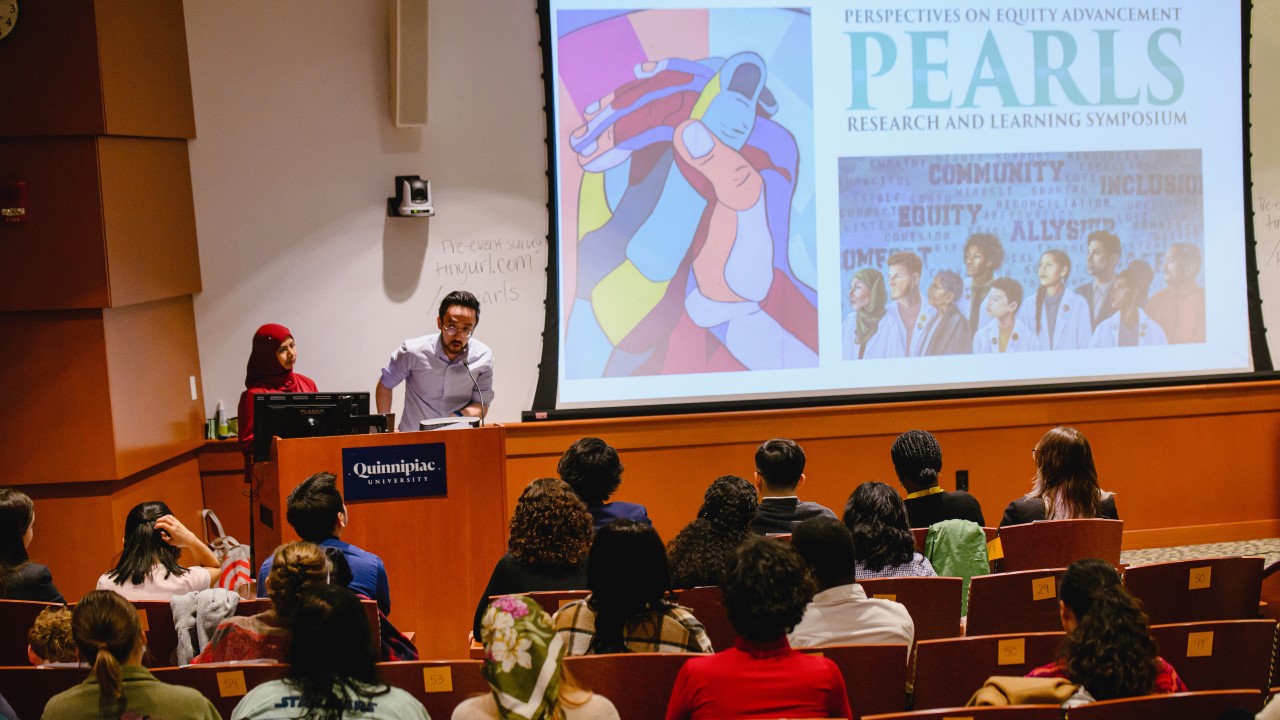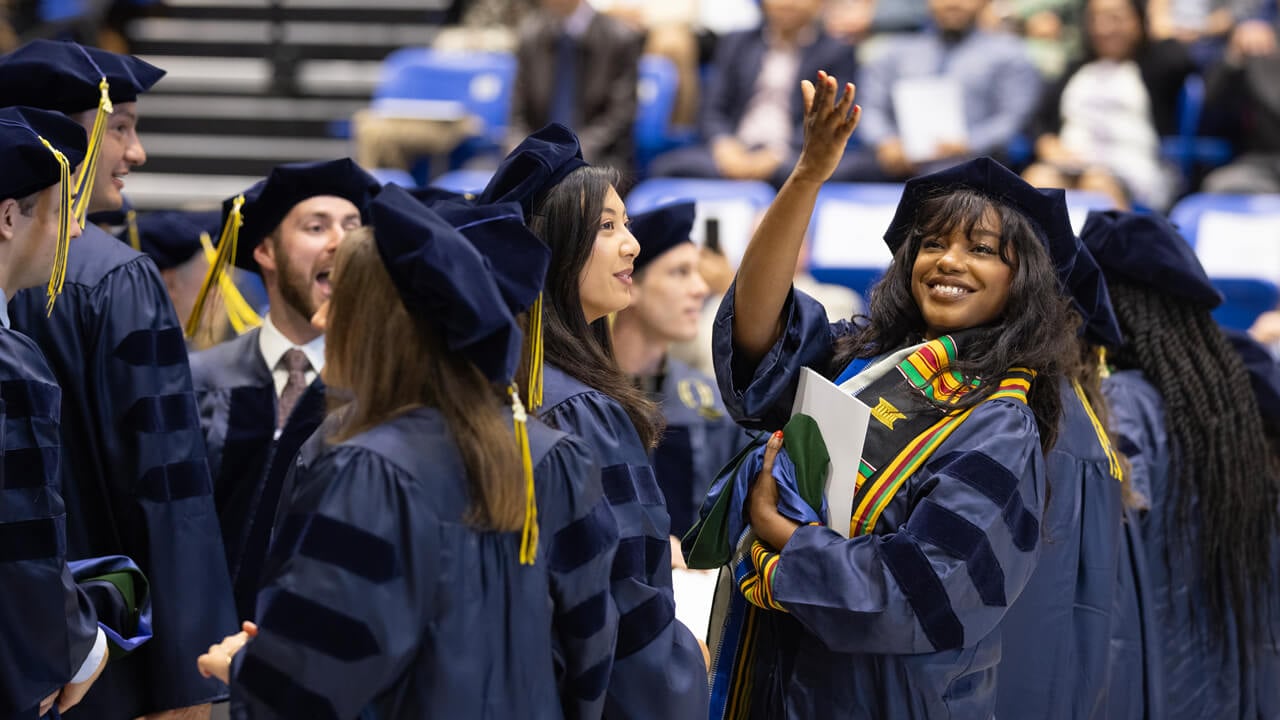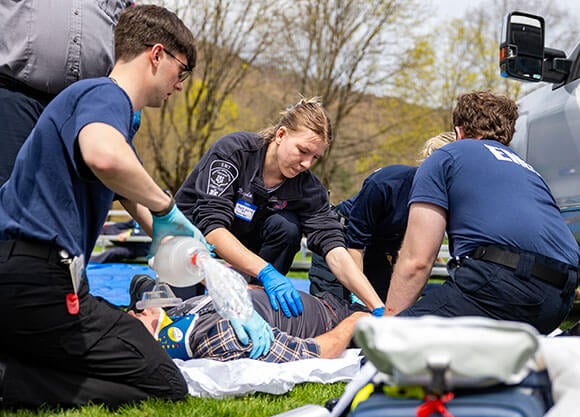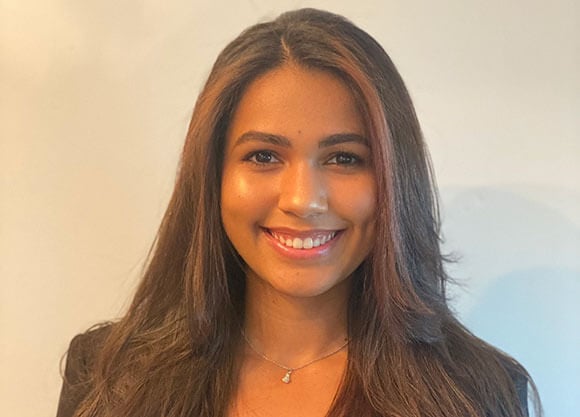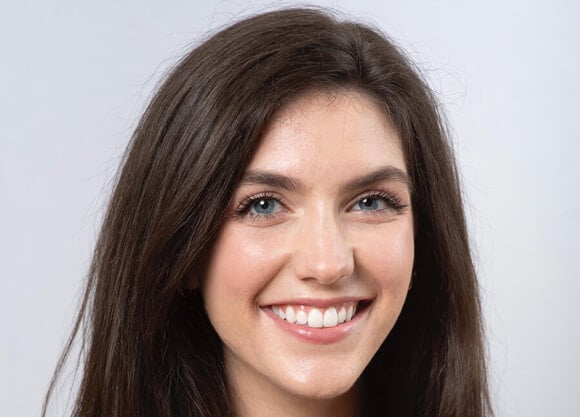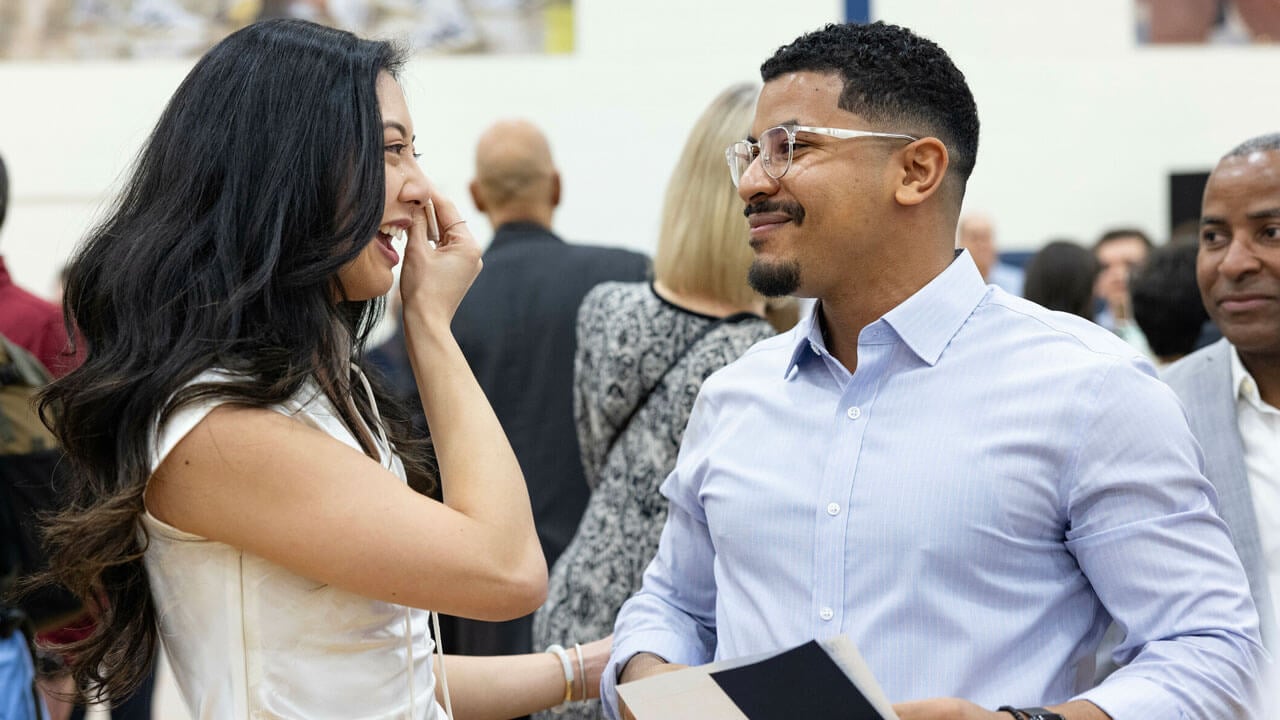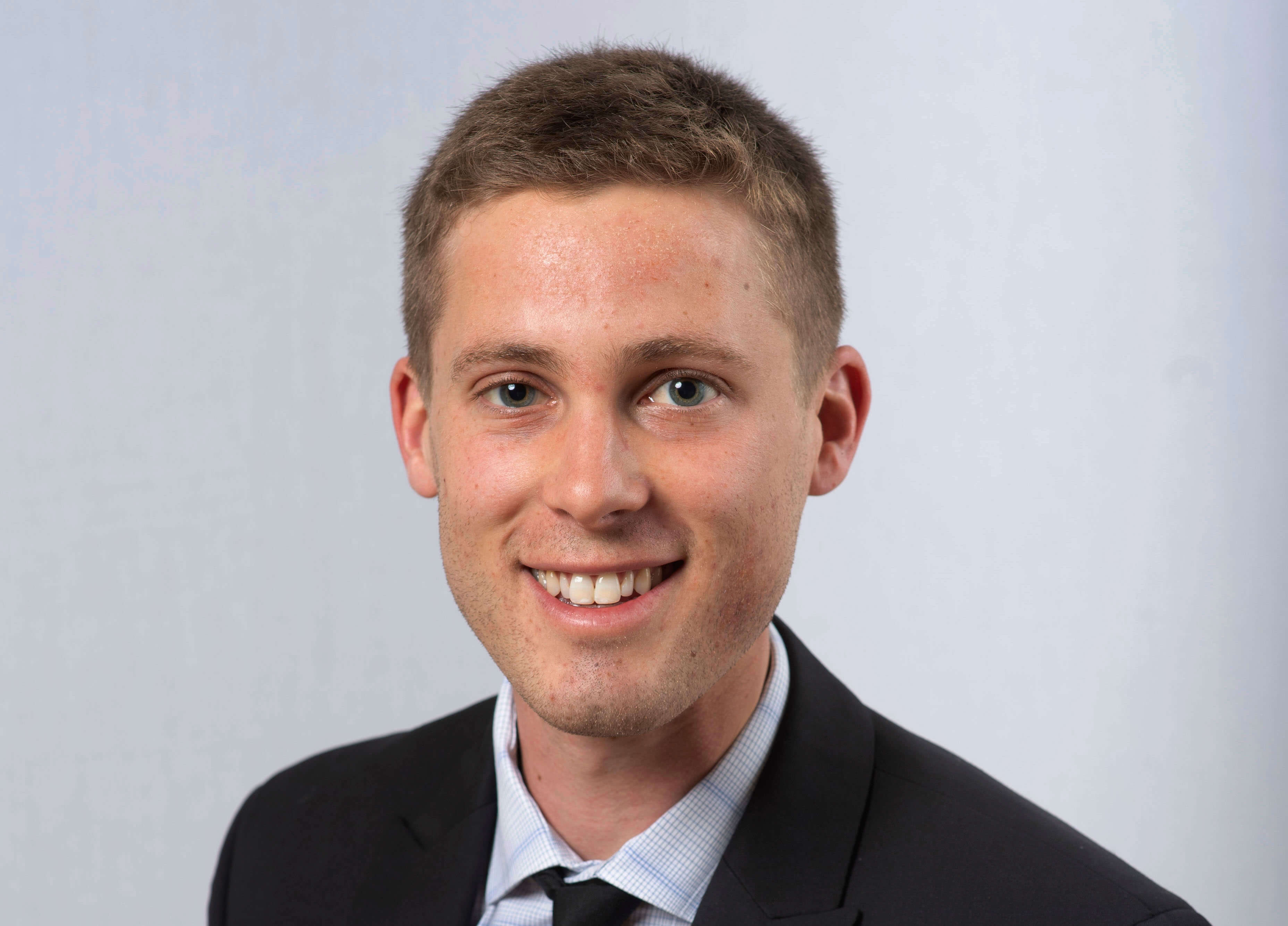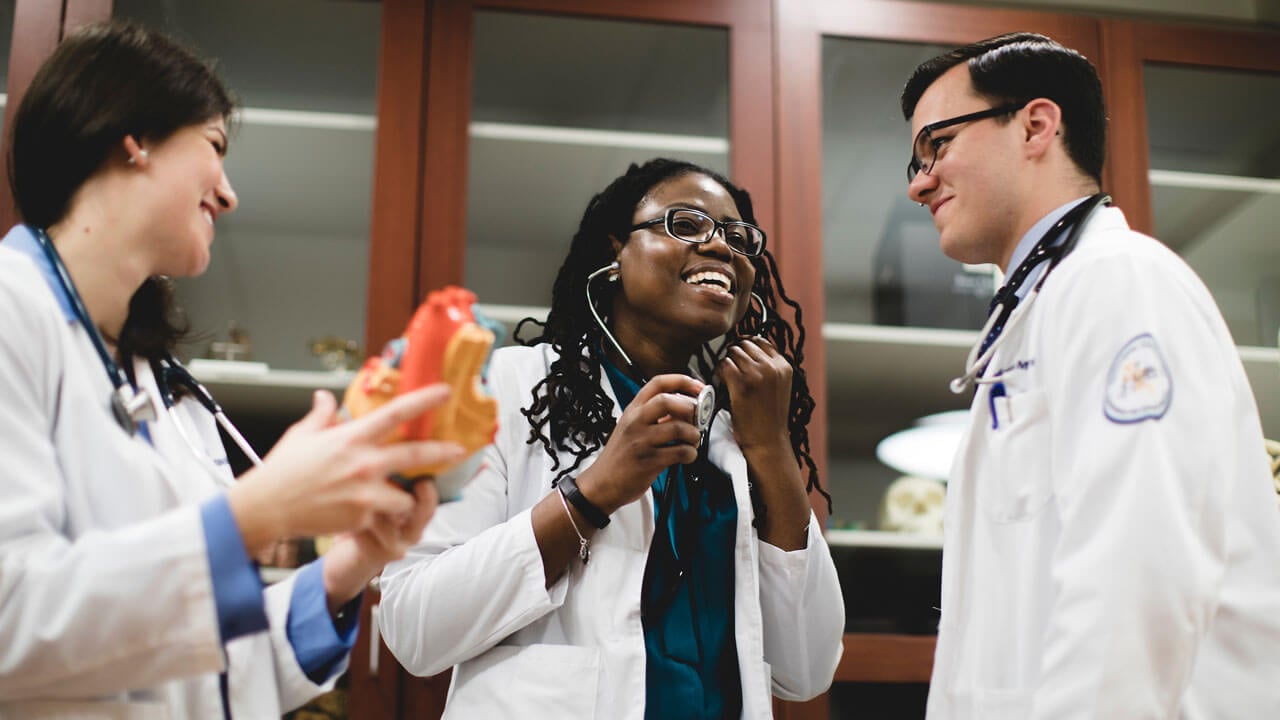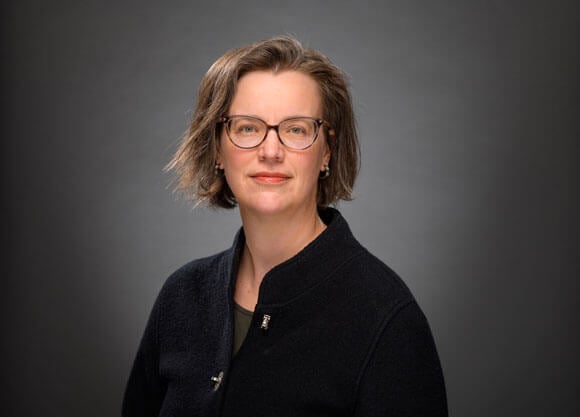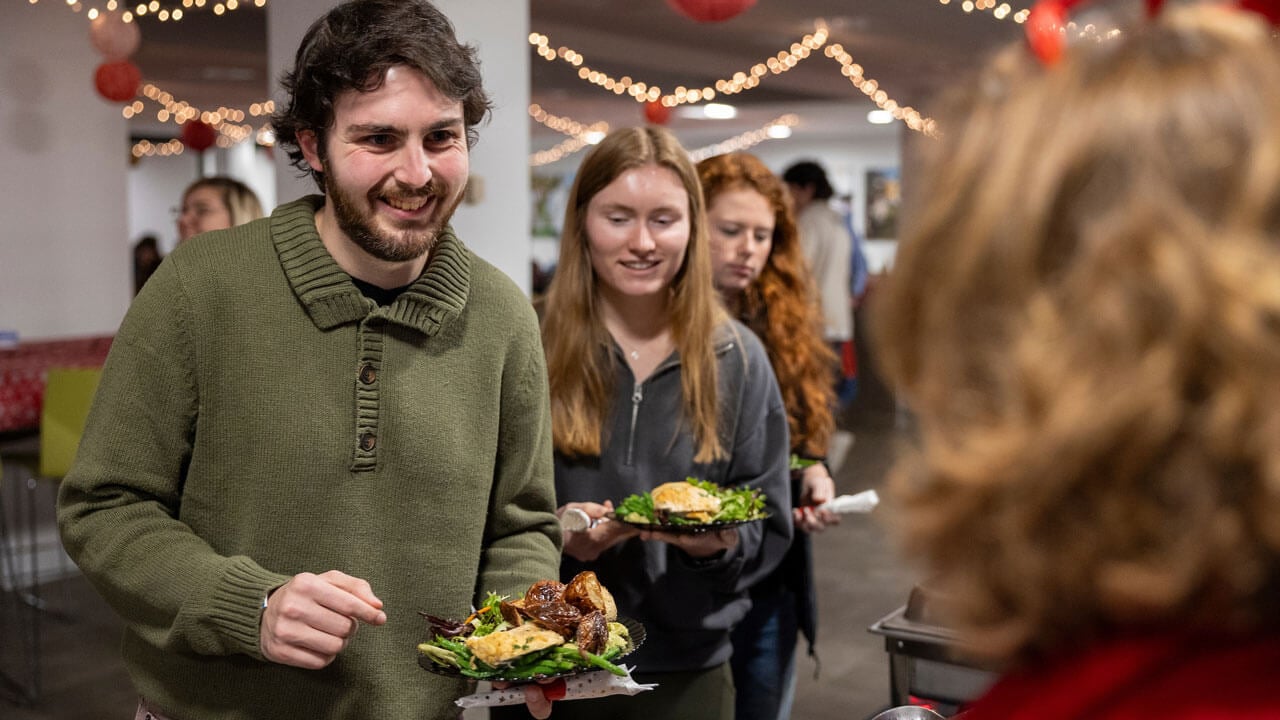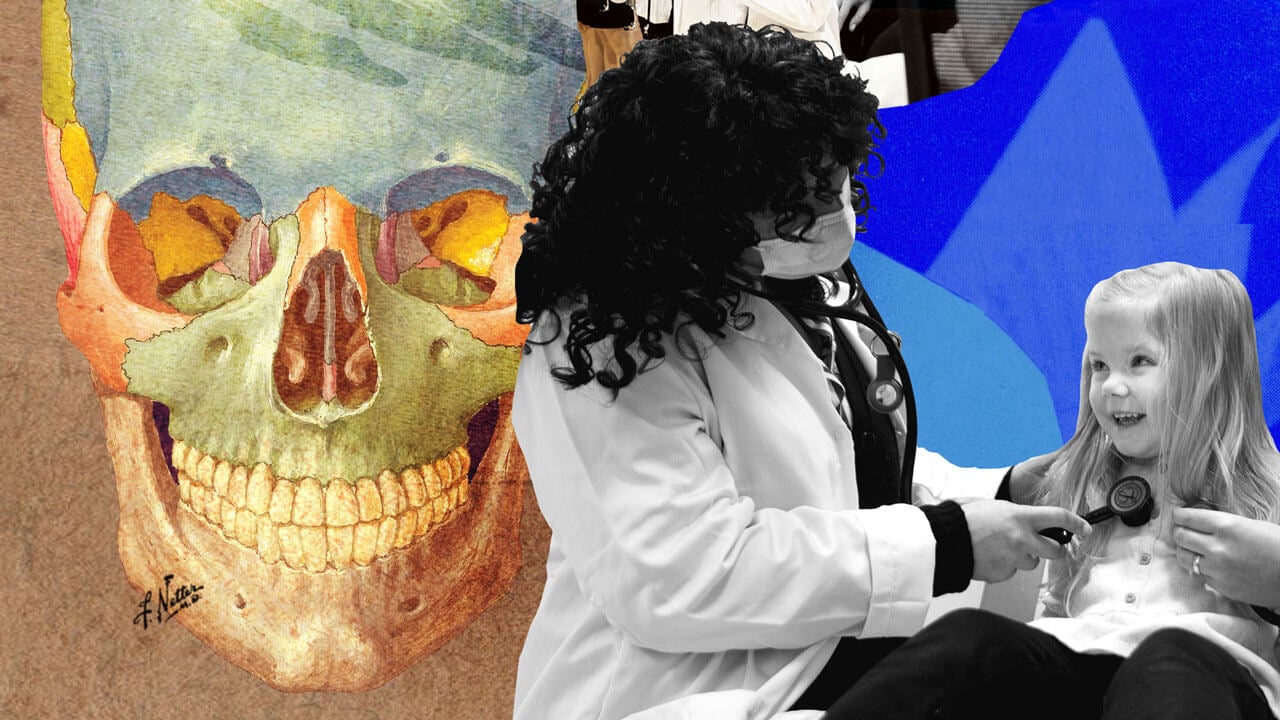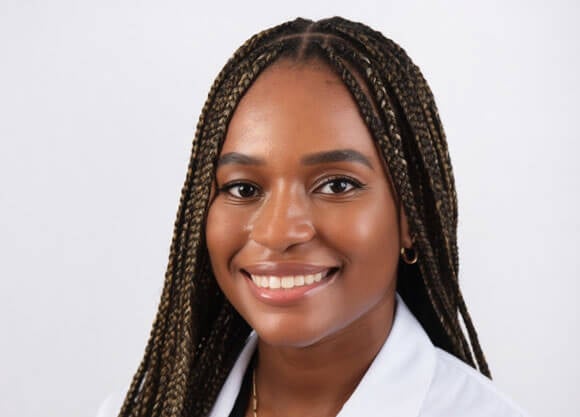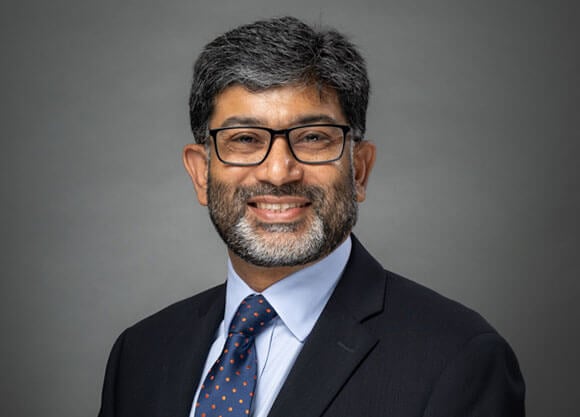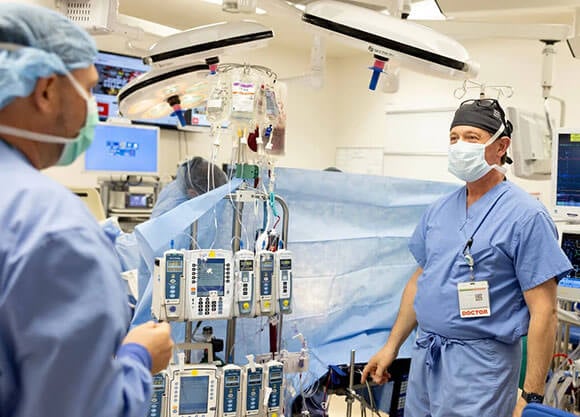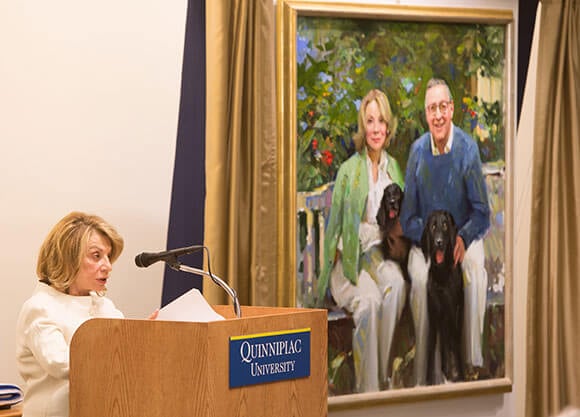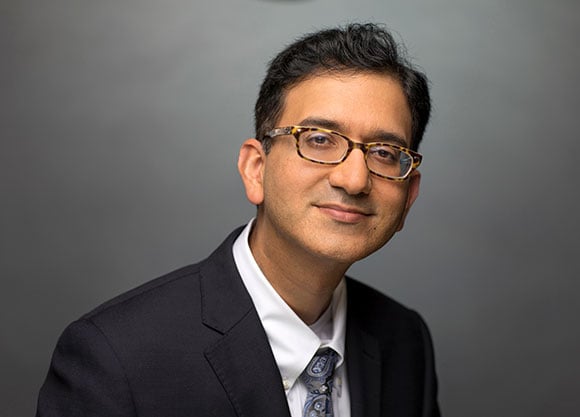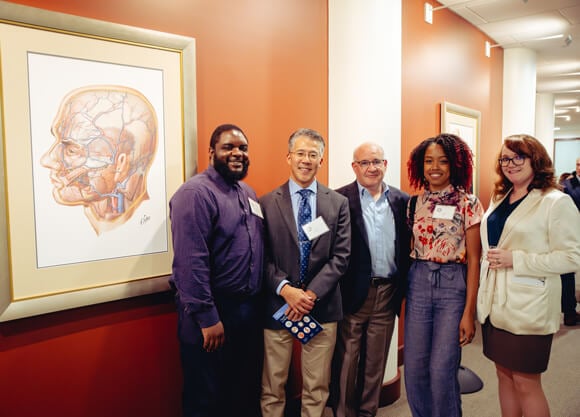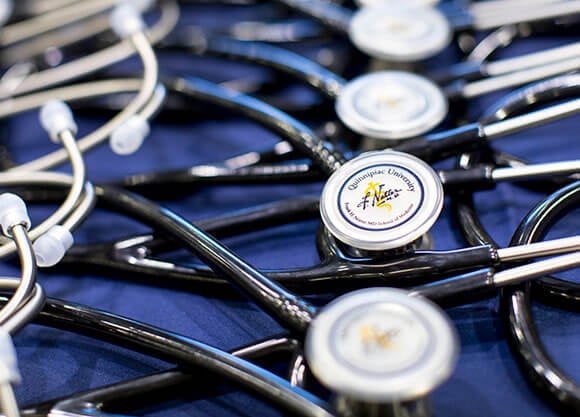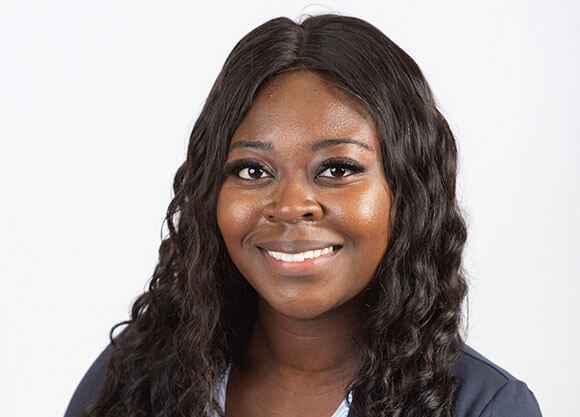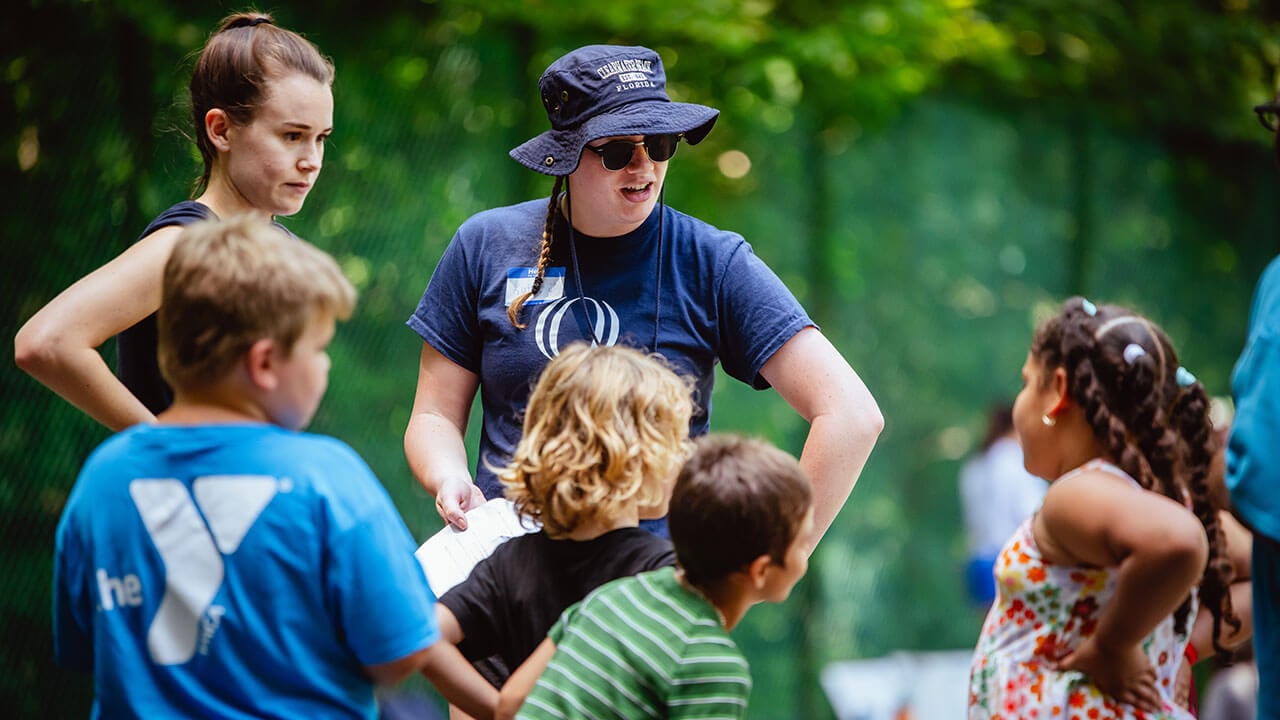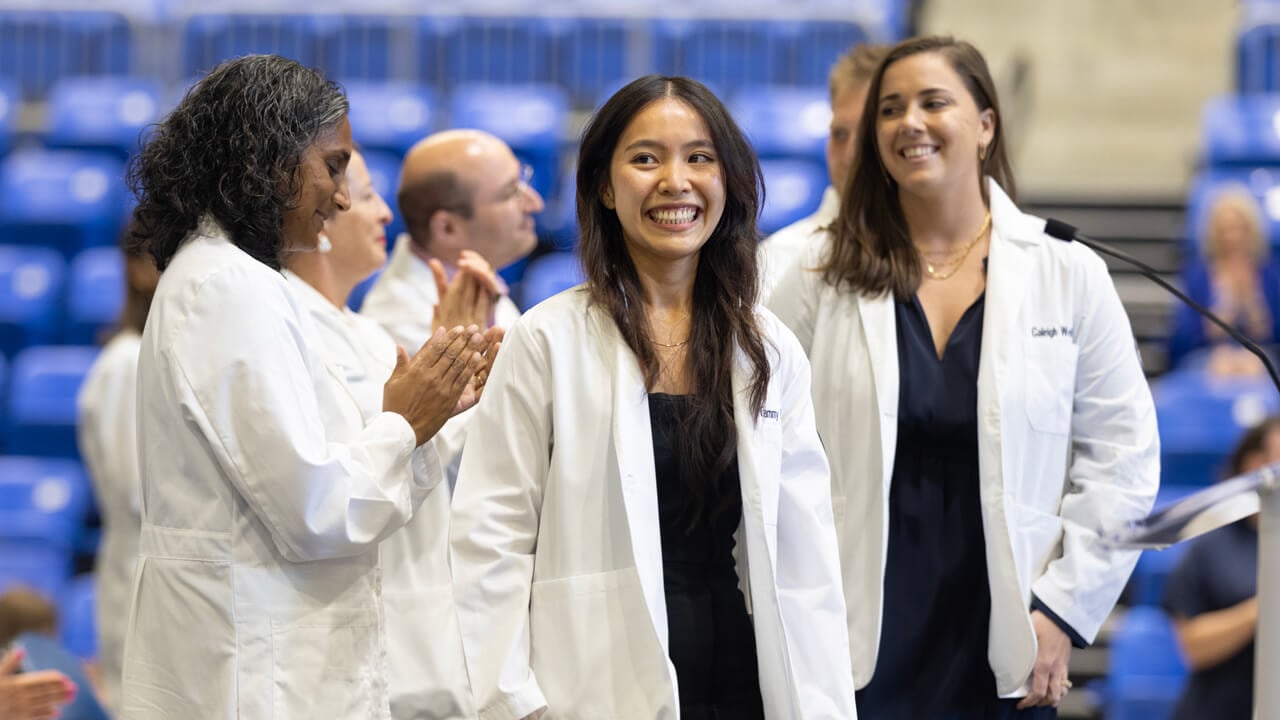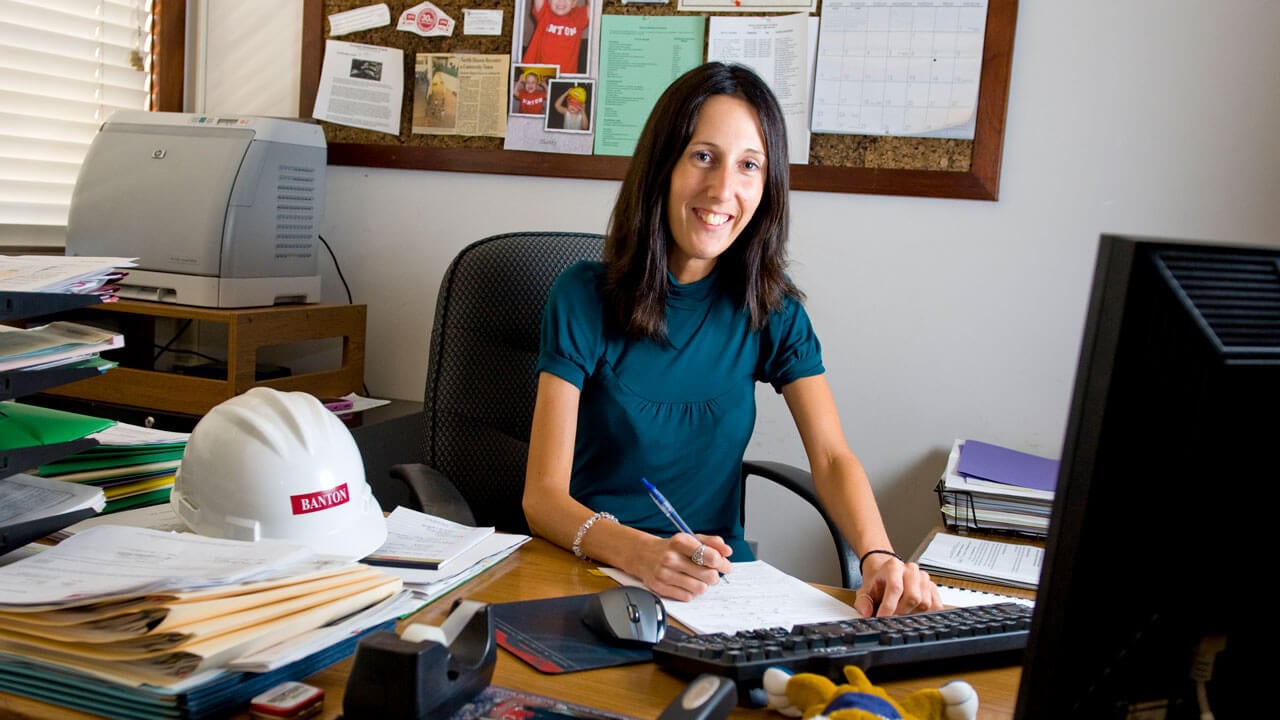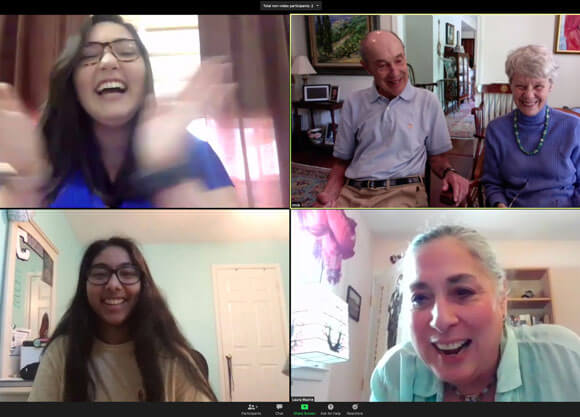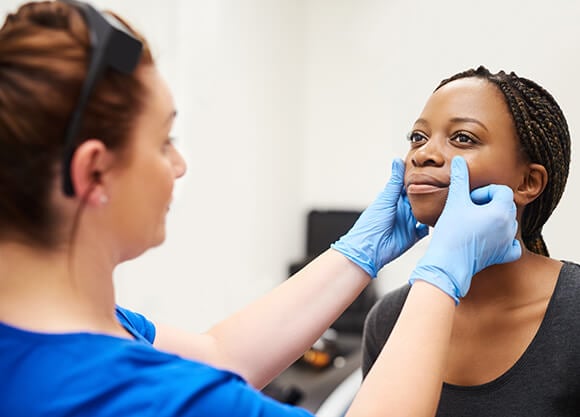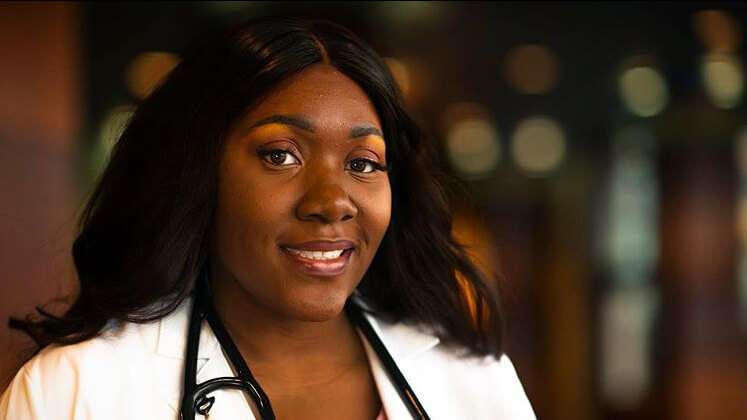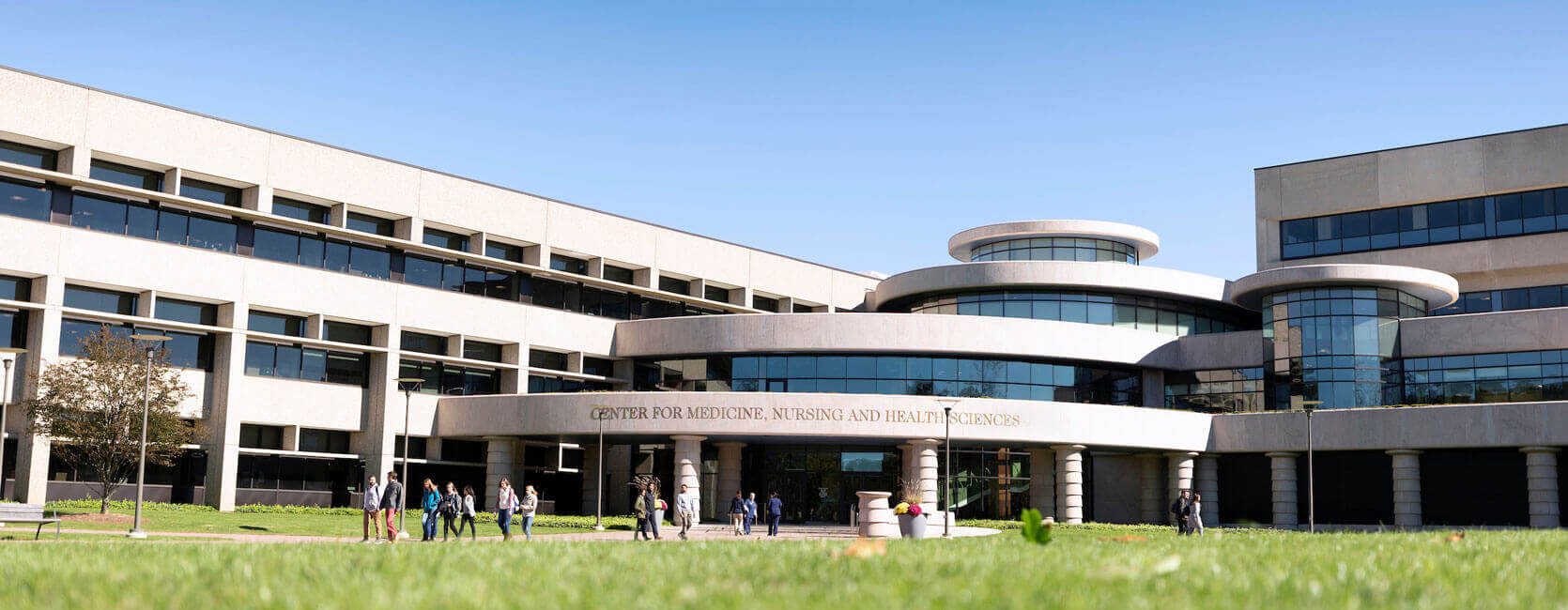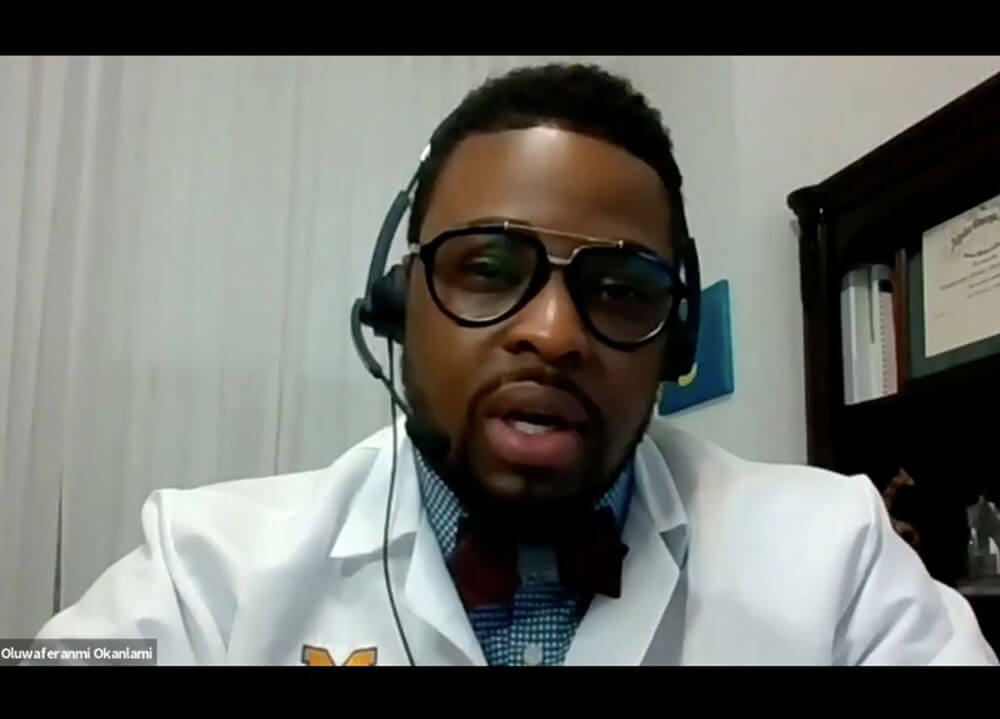
Muldoon, a first-year student at Quinnipiac’s Frank H. Netter MD School of Medicine, wants to make the care of transgender and gender non-conforming patients a sustainable core competency of the curriculum at Netter and other medical schools.
“This project will supplement and improve the quality of transgender and gender non-conforming care here at Netter,” Muldoon said. “We aim to foster a more supportive environment for the students here within that community, and really alleviate the pressure that many feel is put on them because of the lack of education and knowledge.”
Muldoon’s presentation was part of the 2nd annual PEARLS Symposium held recently at the Center for Medicine, Nursing and Health Sciences on the North Haven Campus. PEARLS, which stands for Perspectives on Equity Advancement: Research and Learning Symposium, awarded $1,000 seed grants to four student initiatives, including the one modeled by Muldoon.
The student-led, faculty-mentored symposium was launched last year to incite innovation within the Quinnipiac medical school community by creating awareness of equity, inclusion and diversity, and to inspire solutions that advance those values.
“The inaugural symposium was the most inspiring event that I experienced last year,” said Lisa Coplit, the School of Medicine’s associate dean for faculty development and a faculty adviser for PEARLS, along with Dr. Julianne Hall and Dr. Maureen Helgren. “The dedication and leadership of our students, in particular, fostered a motivating energy that we hope will have long-term impact.”
This year’s PEARLS Symposium was just as thoughtful.
Other winning entries from first-year medical students and their teams included a program to offer free menstrual products in restrooms on the North Haven Campus, a program to make ice hockey more accessible to underrepresented youth, and a program to teach coding to underrepresented youth and expose them to STEM careers.
For Muldoon, unfettered access to quality healthcare should be non-negotiable: “Nationwide, there is a correlation between discrimination and healthcare and poor health outcomes, especially among transgender and non-gender conforming communities.”
Muldoon cited a national transgender discrimination survey that found 50% of the sample had to teach their own medical providers about transgender care. In addition, up to 28% of respondents postponed care because of fear of discrimination.
“On top of this, 19% of this national sample reported being refused medical care, and 24% reported instances of harassment and discrimination,” Muldoon added.
For Makeba Walcott, the idea to provide free menstrual products on the North Haven Campus emerged last September while she was studying for her first medical school exam. It was a stressful time about to become even more stressful.
“I had my period as I was studying, only it came three days before I expected it,” she said. “I was not prepared. I didn’t have a pad or a tampon on me.” So Walcott asked one female student and then another. Neither had a menstrual product to give her.
“Do you at least have a quarter I can borrow, so I can go to one of our bathrooms and access one of the products from the dispensers,” she asked the women. But again, without any success.
“It’s 2023. Our generation doesn’t walk around with quarters in our purses or our wallets, so that was not an option,” Walcott said. “So very briefly, I had to decide: Do I allow my clothes to get soiled, or do I walk down to the parking lot, get in my car ... and go to the Rite Aid?”
Eventually, Walcott decided to do one better.
Along with several peers and the OB-GYN interest group on campus, she vowed to launch a campaign for free menstrual products on the North Haven Campus. Eventually, she hopes there will be free menstrual products across all three of Quinnipiac’s campuses.
“It’s time to normalize menstrual products,” she said. “Think of it as toilet paper, right? You use the bathroom. You expel your waste normally just like those who menstruate through a natural process. So what makes that any different?”
For Devin Naidoo and his peers, this marked the second year that Hockey Haven received a $1,000 seed grant from PEARLS. The group will continue to use the money to help make hockey more accessible to kids from underserved communities, he said.
As a nonprofit affiliate of the NHL’s New York Rangers, Hockey Haven holds learn-to-skate programs at the Ralph Walker Ice Rink in New Haven. Participation is free, and all players are given free gear from the program’s partnership with the Rangers. Many of the kids who register have never been on the ice and are excited to try something new.
“We’re committed to breaking down barriers in the sport of hockey by increasing diversity and inclusion, especially in Greater New Haven for youth hockey,” Naidoo said. “We provide access and opportunity for kids in the area to play hockey, especially those that come from marginalized and under resourced backgrounds.”
For Jason Dinh, teaching coding to underrepresented children at St. Martin de Porres Academy in New Haven exposes them to technology and skills that could lead to STEM careers. What’s more, these young coders could eventually bring much-needed diversity and representation to the STEM field.
“There is a lack of Black and Hispanic Americans in the computer science workforce,” Dinh told those in attendance. “There’s a real need to diversify the workforce.”
Dinh said many of the St. Martin de Porres students are interested in computer programming and some even have coding experience. He and his peers teach the students how to use CS First, a free coding and computer programming curriculum from Google.
“It’s an appropriate programming language that is easily accessible and focuses on early education,” Dinh said. “We want to help students apply problem-solving strategies, while at the same time, engage in learning and figuring out how things work.”
But the STEM representation model doesn’t end there.
“It’s equally important that we increase the number of females interested in coding — and that we do it for the long term,” Dinh said
In this Article
Stay in the Loop
Quinnipiac Today is your source for what's happening throughout #BobcatNation. Sign up for our weekly email newsletter to be among the first to know about news, events and members of our Bobcat family who are making a positive difference in our world.
Sign Up Now